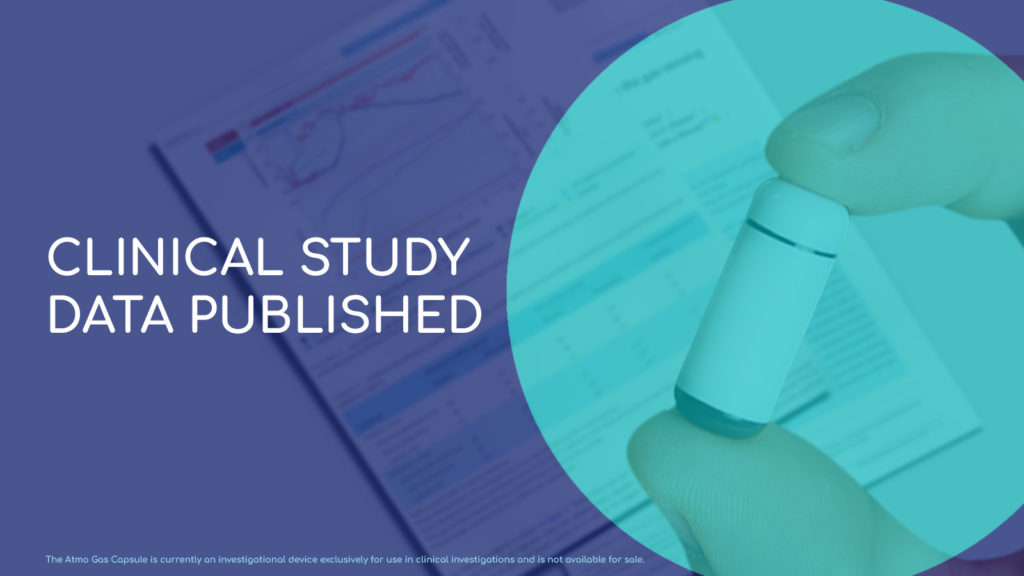
Atmo Biosciences is pleased to announce publication of a clinical study demonstrating strong agreement between data from Atmo’s world-first ingestible gas-sensing capsule and and a validated, FDA-cleared Wireless Motility Capsule (WMC), in determining transit metrics in healthy subjects.
Based on the encouraging data, Atmo intends to conduct a clinical trial in patients with gastrointestinal motility disorders.
The paper, entitled “Comparison of gastrointestinal landmarks using the gas-sensing capsule and wireless motility capsule”, has been published in the journal Alimentary Pharmacology & Therapeutics and can be accessed at https://onlinelibrary.wiley.com/doi/full/10.1111/apt.172161.
While Atmo’s Gas Capsule uses different sensor technologies to the WMC, both devices resulted in excellent observer agreement for the identification of key anatomical landmarks and for measurements of gut motility and transit time. These landmarks, along with the capsule’s ingestion and exit times, are used to measure gut motility and diagnose disorders such as delayed gastric emptying or slow-transit constipation. Based on the positive data from the study, Atmo intends to initiate a similar clinical trial in patients with gastrointestinal motility disorders to demonstrate the clinical utility of the Atmo Gas Capsule.
Recent data released by the American Gastroenterological Association has shown that nearly 40% of Americans have stopped routine activities such as doing exercise or running errands in the last year due to uncomfortable bowel symptoms2. Measurements of gut motility are important for evaluating and diagnosing these patients.
Professor Peter Gibson, Head of Luminal Gastroenterology Research at the Central Clinical School, Monash University commented: “Results from this recent study are particularly pleasing in that they demonstrate such strong agreement between Atmo’s gas-sensing capsule and WMC. The gas-sensing capsule is able to provide useful data to determine if a person’s gut motility is too fast or slow. This personalised information is likely to be key for future clinical practice as different gastrointestinal disorders require different interventions.”
Malcolm Hebblewhite, Atmo CEO and Managing Director commented: “Data from this study has provided us with the confidence to progress to a study involving patients who have the motility disorders that we are aiming to diagnose. We are very excited to be working with key opinion leading gastroenterologists who specialise in functional gut disorders to support the upcoming study.
The Atmo Gas Capsule is currently an investigational device exclusively for use in clinical investigations and is not available for sale.
References:
- A. Thwaites et al: Comparison of gastrointestinal landmarks using the gas‑sensing capsule and wireless motility capsule. Alimentary Pharmacology and Therapeutics 2022; https://doi.org/10.1016/ S0140-6736(21)02724-0
- ‘New survey finds forty percent of American’s daily lives are disrupted by digestive troubles” – American Gastroenterological Association press release, 14 September 2022; www.gastro.org/news

